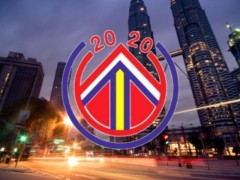الأخبار

Vision 2020 – where we went wrong
التاريخ : 31 December 2019
المحرر : Roslan Bin Rusly
الفئة : News
غرد هذا
DZULKIFLI ABDUL RAZAK - -
WE should have been jubilantly welcoming a “2020 Malaysia” based on Wawasan 2020 that was launched in 1991. It was a powerful rallying point in the drive to push Malaysia out of the middle-income trap and to be a “developed” country. But the timeline has now been extended to 2030 and another strategy adopted – the “Shared Prosperity Vision (SPV)”.
There are many reasons for this, notably, the state of affairs that the country is in on several fronts: economically, ecologically and socially. Most telling is the last of the three, gauged by the nine challenges that make up the Wawasan.
Out of the nine, five have fallen short in meeting the well defined targets. For example, the first challenge is the creation of Bangsa Malaysia. Yet we are worse off than in 1991.
So, too, the other four which could also be categorised as values-based from the socio-cultural perspective. Including those that border on issues of ethics and morality. Be it the creation of a caring and loving Malaysian community or that of a just and equitable Malaysia.
The fact that SPV has been introduced, somewhat signals the misalignment to the goals set for a more egalitarian Malaysia. Meaning, today the harmonious balance between the three dimensions of economic-ecological-societal is still wanting. Evidence of these abound, leading to the pronouncement of the SPV 2030.
To sum it all is the 1MDB scandal, which draws on the crisis of values at every conceivable level of the governmental sector. While corruption is not new, the unimaginable proportion is unprecedented.
Wawasan 2020 is also ecologically deficient. A year after it was launched, the Earth Summit or the United Nations Conference on Environment and Development was organised in 1992 in Rio de Janeiro.
It was attended by representatives from 172 countries, including 108 heads of state, including Malaysia, in attendance, with some 2,400 representatives of NGOs. This is enough to tell us that ecological concerns are vital in the pursuit of development which otherwise remains unsustainable. This further weighs in on the need for a harmonious balance between economy, ecology and society.
We have seen how the societal aspect is compromised by being deficient in values, but it is not exclusive from the environmental standpoint, making the Wawasan even further out of reach.
This is even more noticeable because none of the nine challenges is singularly anchored on ecological goals or targets.
One obvious consequence of this gap is the fact that floods, especially in the east coast, remain a feature to this day despite some 30 years of rolling out the ambitious targets of Wawasan 2020.
In recent times it has worsened and more states are flooded, with a more severe occurrence. Indeed, issues pertaining to water per se, including that of pollution, depletion and shortage, were making more frequent headlines for the wrong reasons. In short, the overall development strategy so far falls into the category of being “unsustainable”.
This is in stark contradiction to the many international calls to adopt sustainable development as the thrust for all national policies including Education for Sustainable Development since some 10 years ago. Unfortunately, this is not happening in earnest.
There is no excuse because well before that in 1987, the well known Brundtland Report (officially titled Our Common Future) commissioned by the UN was released with clear emphasis of the need to embrace sustainability as a global mandate for the future that we want.
As we now embark on the year 2020, all the discernible deficiencies must now be urgently addressed if the SPV is to see the light of day, 10 years from now.
Happy New Year and Salam Sejahtera to all.








